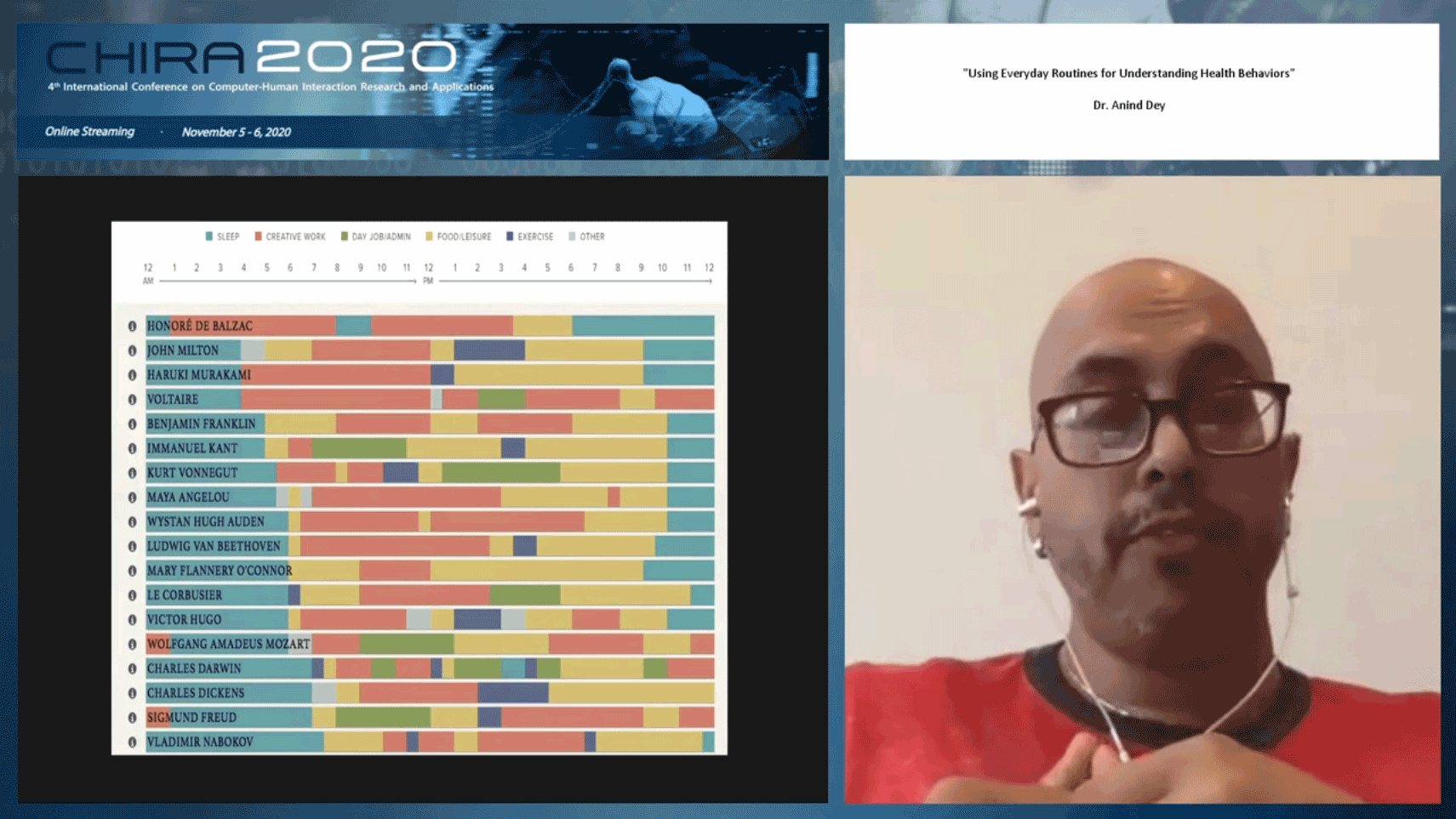
Using Everyday Routines for Understanding Health Behaviors
We live in a world where the promise of ubiquitous computing and the Internet of Things is coming true. We have smart devices that pervade our lives, and that are constantly collecting data about us and mostly discarded as irrelevant. I will demonstrate how researchers can extract relevance from this passively collected data and use it to "image" people's behaviors. I will describe approaches for extracting behavioral routines from smart devices, and then how these routines can help us better understand individual and group human behaviors, as well as anomalies. Using examples from healthcare, I will describe how we can leverage both routines and anomalies to improve our understanding of health-related behaviors and support behavior change. View the video of iSchool Dean Anind Dey's presentation at https://vimeo.com/478881870.
Anind K. Dey
Projects in Human-Computer Interaction
- Leveraging Collaborative Filtering for Personalized Behavior Modeling: A Case Study on Depression Detection among College Students
- On the Steppe: Plain Talk Imagining Technology Used Wisely
- Using Everyday Routines for Understanding Health Behaviors
- When Screen Time Isn’t Screen Time: Tensions and Needs Between Tweens and Their Parents During Nature-based Exploration
- Falx: Synthesis-Powered Visualization Authoring
- What Makes People Join Conspiracy Communities? Role of Social Factors in Conspiracy Engagement
- Visually Encoding Personal Data for Vulnerable Populations
- Who Are You Asking?: Qualitative Methods for Involving AAC Users as Primary Research Participants
- Where Are My Parents?: Information Needs of Hospitalized Children
- Parenting with Alexa: Exploring the Introduction of Smart Speakers on Family Dynamics
- “Eavesdropping”: An Information Source for Inpatients
- Detecting Depression and Predicting its Onset Using Longitudinal Symptoms Captured by Passive Sensing: A Machine Learning Approach With Robust Feature Selection
- Mobile Assessment of Acute Effects of Marijuana on Cognitive Functioning in Young Adults: Observational Study
- Telling Stories: On Culturally Responsive Artificial Intelligence
- What Makes People Join Conspiracy Communities?: Role of Social Factors in Conspiracy Engagement
- Early adopters of a low vision head-mounted assistive technology
- Being (In)Visible: Privacy, Transparency, and Disclosure in the Self-Management of Bipolar Disorder
- Visualizing Personal Rhythms: A Critical Visual Analysis of Mental Health in Flux
